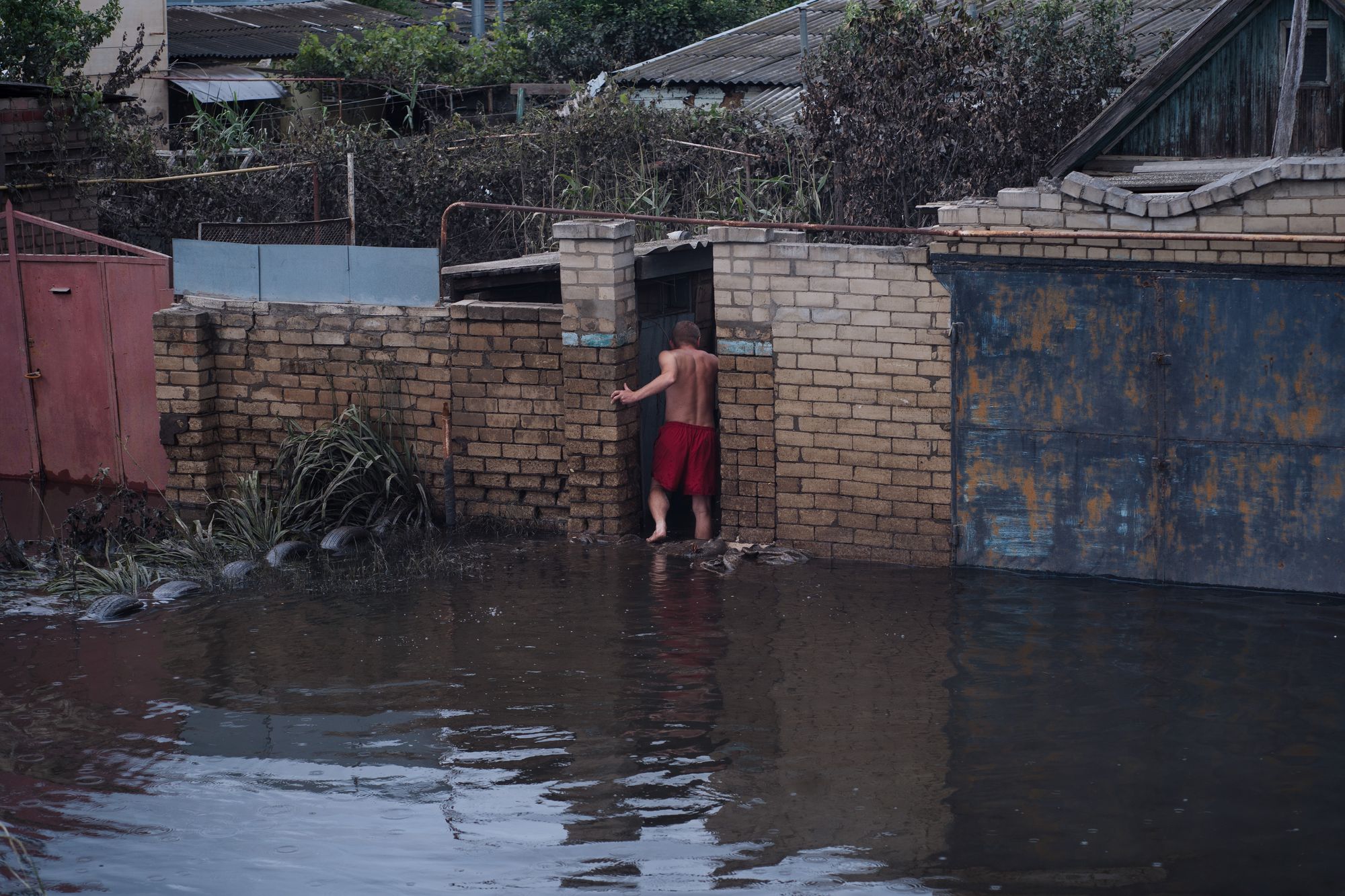ISW: Russian forces remain unlikely to cause an intentional 'accident' at Zaporizhzhia plant.
The Russian forces would not be able to control the consequences of an intentional radiological incident at the Zaporizhzhia Nuclear Power Plant, the Institute for the Study of War said[1] in its latest update on June 30. The experts previously assessed that a radiological incident could "further degrade Russia's ability to cement its occupation of southern Ukraine" by leaving areas uninhabitable and ungovernable. "Russian forces could conduct several possible radiological man-made incidents at the Zaporizhzhia Nuclear Power Plant, some more serious than others," the ISW said, adding that Russian forces could discharge "irradiated water from the plant into the Kakhovka Reservoir to disrupt a potential Ukrainian crossing" of the now largely drained reservoir.
Russian forces could also attempt to create a radiological plume to cover a larger area of southern Ukraine, the ISW said, "although the reactors are designed to make doing so difficult." The prevailing winds in Zaporizhia Oblast are most often from the north from June 9 to September 3, although forecasted wind directions in the area following the reported July 5 evacuation deadline include days of predominantly easterly winds. "A radiation plume from the plant would most certainly affect the Russian forces in Zaporizhzhia and Kherson oblasts and possibly in Crimea and would likely impact the Russian forces to a greater degree than the Ukrainian forces given the usual direction of the wind in the area," the ISW concluded. "None of these options provide more military benefit for Russian forces than the likely consequences they would create."
Sinking memories.
Kherson residents recover after Kakhovka dam disaster (PHOTOS) Editor's note: The following is a photo essay and a personal reflection on the flooding of Kherson by Ukrainian photographer Anastasia Vlasova, a native of Kherson. Vlasova returned to her hometown days after Russia destroyed Kakhovka dam in early June, resulting in a catastrophic flooding of many c...
 [2]
[2]  Olena Goncharova
Olena Goncharova
Development manager, Canadian correspondent
Olena Goncharova is a development manager and Canadian correspondent for the Kyiv Independent.
She first joined the Kyiv Post, Ukraine's oldest English-language newspaper, as a staff writer in January 2012 and became the newspaper's Canadian correspondent in June 2018. She is based in Edmonton, Alberta. Olena has a master's degree in publishing and editing from the Institute of Journalism in Taras Shevchenko National University in Kyiv.
Olena was a 2016 Alfred Friendly Press Partners fellow who worked for the Pittsburgh Post-Gazette for six months. The program is administered by the University of Missouri School of Journalism in Columbia.
References
- ^ said (understandingwar.org)
- ^ Sinking memories. Kherson residents recover after Kakhovka dam disaster (PHOTOS)Editor's note: The following is a photo essay and a personal reflection on the flooding of Kherson by Ukrainian photographer Anastasia Vlasova, a native of Kherson.
Vlasova returned to her hometown days after Russia destroyed Kakhovka dam in early June, resulting in a catastrophic flooding of many c...
(kyivindependent.com)